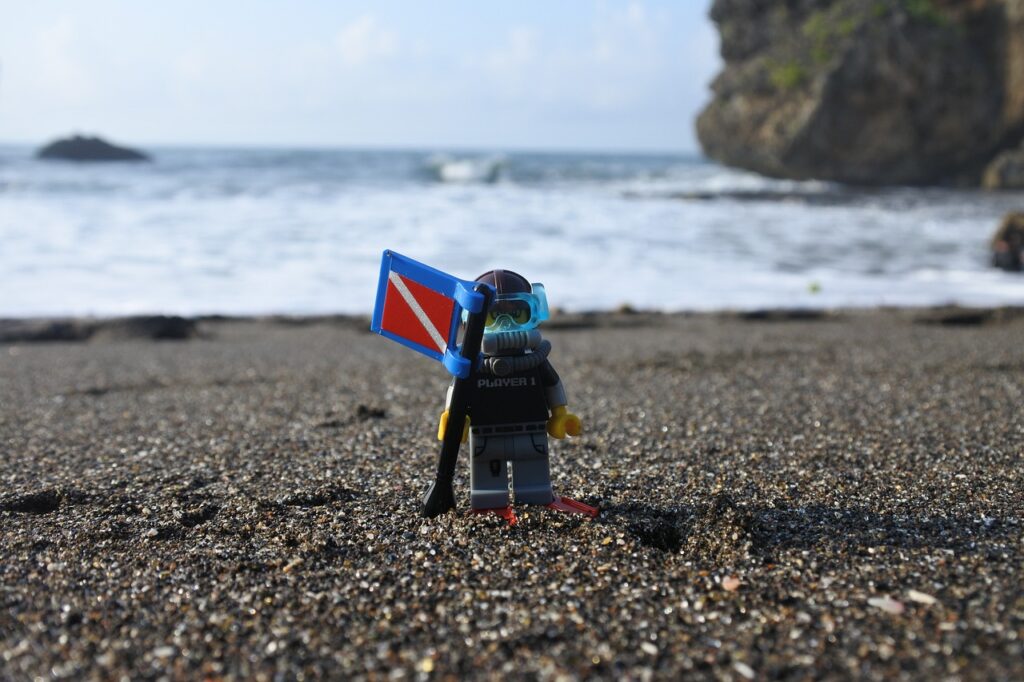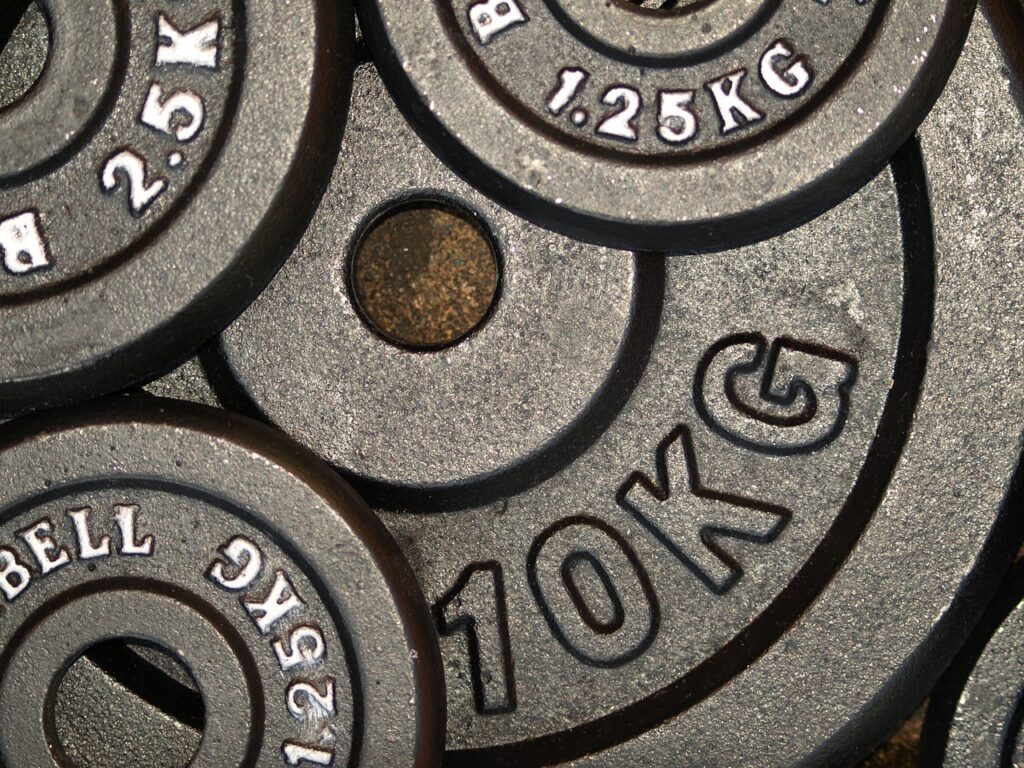Are you diving with too much weight? Many divers do it.
Maybe your body weight has changed, or maybe you dive mostly in cold water and forget to reduce the weight when you switch to warm water. But the most common reason is: you have always used too much weight.
When I was a beginner, divemasters always looked at me strangely when I asked for eight kilograms of weight while wearing a three-millimeter wetsuit (I weigh about 52 kg). “That's the weight I always use,” I said with a shrug.
I felt confident asking for that much weight because it was the weight I used in my PADI Open Water Diver class. When the instructor did a buoyancy test at the surface, I floated at eye level like a champ. When I exhaled, I sank. Ergo, I was perfectly balanced.

I didn't realize that I was unconsciously holding my breath (just a little) throughout the dive. I didn't do it on purpose. As any certified diver knows, the most important rule in scuba diving is to breathe continuously and never hold your breath. But my anxiety about diving prevented me from fully relaxing.
As a result, I was carrying three and a half kilos more weight than I needed to. That amount of weight corresponds to about four liters of water.
Imagine carrying four liters of something around for 30 to 60 minutes. Unless you're extremely fit, you'll quickly start breathing heavily — which brings me to the first problem with diving with too much weight.
#1 You use the air in your tank faster As described above, the extra kilos force your body to work harder than necessary. Extra effort requires more oxygen, so you breathe harder and empty your tank faster.
If you want to spend more time underwater, ask your PADI instructor about a Peak Performance Buoyancy course. It's a great way to lose a few pounds and one of the easiest ways to improve your air consumption while diving.
#2 An overweight diver is a “disaster diver” Divers who carry too much weight often crash straight to the bottom. I have seen overweight divers crash onto the reef and land on divers who entered the water moments before.
Throughout the dive, divers with too much weight often have buoyancy problems. They swim around, not realizing they're sunk - until they kick something. At that point, the damage has already been done.

Being a new diver, I knew my buoyancy wasn't very good, so I stayed about four meters above the reef. Divemasters signaled me to look at things, but I waved them away because I knew I would struggle to hold my position in the water. Want to see a seahorse? No thanks. Harlequin shrimp? Not interested. I'm kidding, of course. I wanted to see those things more than anything else.
#3 Extra weight = increased risk In addition to being a danger to marine life and other divers, people who carry too much weight put themselves at risk. The Divers Alert Network (DAN) tracks diving incidents from around the world. Almost 90% are due to diver errors.
As mentioned above, carrying too much weight means your body has to work harder. If you're not as fit as you used to be, kicking into a current can turn a challenging swim into a medical emergency.
When diving with too much weight, an equipment failure, such as a BCD that doesn't inflate or a lost weight pocket, can quickly become dangerous. I recently had a weight pocket fall out during a dive, but I was able to ascend slowly and safely. If the same thing had happened when I was diving with too much weight, I could have ended up with decompression sickness or some other diving injury caused by a rapid ascent.
Are you diving with too much weight? Here are some signs that you may be diving with too much weight.
At the start of the dive, you sink faster than everyone else. Scuba diving makes you exhausted. You add/deflate your BCD frequently throughout the dive (a dozen times or more). Frequent buoyancy adjustments are a red flag that you are diving with too much weight. When diving with too much weight, add more air to your BCD, about half a liter per kilo. More air in your BCD means greater buoyancy fluctuations throughout the dive because the air expands and contracts as you ascend and descend.
How do you know if you are properly balanced? The amount of weight you need for scuba diving is somewhat personal. Two people who weigh the same may need different amounts of weight depending on their:
Body Composition – People with a higher percentage of body fat need more weight. Protection – Thick wetsuits and drysuits require more weight than a short wetsuit. Tank – Steel tanks are typically negatively buoyant throughout the dive; aluminum tanks can start negative and become positive. Scuba diving weight calculator Both DAN and Scuba Diving magazine have useful articles on how much weight divers need with different scuba configurations. If you're diving with the most common scuba tank (an 11-gallon aluminum 80) in salt water, here's a quick way to estimate how much weight you'll need.
Start with:
10% of your body weight if you wear a full wetsuit (5-7mm). For a 3mm wet suit, you may only need 5% If you are wearing a dry suit, you may need 15% (or more) Then add two kilos to counteract tank buoyancy at the end of the dive.
Then do a buoyancy test.
At the surface, float at eye level while holding a full breath. When you exhale, sink slowly – don't sink to the bottom like a stone.
To check your buoyancy at the end of a dive, pass the weights to your buddy and see if you can still sink when you exhale. Be careful not to go deeper than six meters.
Enjoy longer, safer dives If you want to enjoy longer, more relaxed dives, the Peak Performance Buoyancy course is well worth it. You can complete the course in just one or two days. Most divers are pleasantly surprised at how much their diving skills and confidence improve in a short time.
Blivdykker.dk is a diving center that can help you with correct balancing and offers courses in this.
